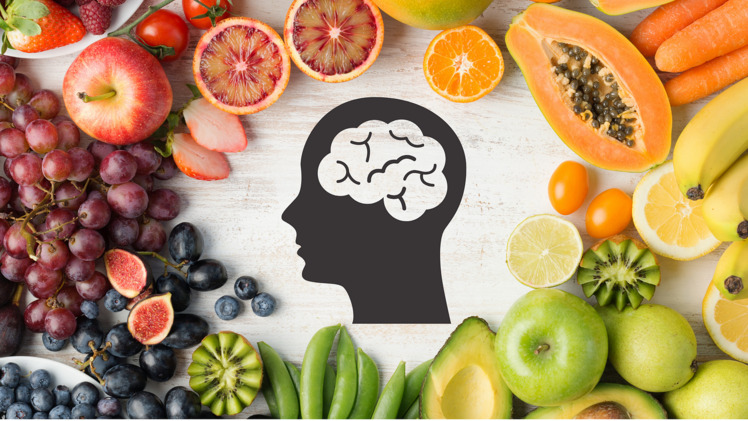The Vital Connection Between Health and Nutrition

Health and nutrition are inextricably linked, forming the foundation of overall well-being. Proper nutrition is crucial for maintaining good health, preventing chronic diseases, and enhancing quality of life. In an era where lifestyle-related health issues are on the rise, understanding the role of nutrition has never been more important. This article delves into the key aspects of health and nutrition, exploring essential nutrients, the impact of diet on health, the importance of balanced eating, and practical tips for maintaining a healthy lifestyle.
The Basics of Nutrition
Nutrition is the process by which our bodies obtain and utilize the nutrients necessary for growth, maintenance, and energy. These nutrients are categorized into macronutrients and micronutrients:
- Macronutrients: These are nutrients required in large amounts and include carbohydrates, proteins, and fats. They provide the energy needed for daily activities and bodily functions.
- Carbohydrates: The primary source of energy. They can be found in foods such as grains, fruits, vegetables, and legumes.
- Proteins: Essential for growth, repair, and maintenance of body tissues. Sources include meat, fish, eggs, dairy products, legumes, and nuts.
- Fats: Necessary for energy, cell function, and the absorption of certain vitamins. Healthy fats are found in olive oil, avocados, nuts, and fatty fish.
- Micronutrients: These are required in smaller amounts and include vitamins and minerals. They play crucial roles in various bodily functions, including immune support, bone health, and wound healing.
- Vitamins: Organic compounds essential for normal growth and nutrition. Examples include vitamins A, C, D, E, and K, as well as the B-vitamins.
- Minerals: Inorganic elements like calcium, potassium, iron, and magnesium, each playing specific roles in maintaining health.
Impact of Diet on Health
The impact of diet on health cannot be overstated. A balanced diet that includes a variety of nutrient-rich foods is essential for preventing chronic diseases and promoting overall well-being. Here are some key health benefits of proper nutrition:
- Weight Management: A balanced diet helps in maintaining a healthy weight, which is crucial for reducing the risk of obesity-related conditions such as type 2 diabetes, heart disease, and certain cancers.
- Cardiovascular Health: Consuming a diet rich in fruits, vegetables, whole grains, and healthy fats can lower the risk of heart disease by reducing blood pressure, cholesterol levels, and inflammation.
- Bone Health: Adequate intake of calcium and vitamin D is essential for maintaining strong bones and preventing osteoporosis.
- Mental Health: Emerging research suggests that nutrition plays a significant role in mental health. Diets high in processed foods and low in nutrients are associated with increased risk of depression and anxiety.
- Digestive Health: A diet high in fiber from fruits, vegetables, and whole grains promotes healthy digestion and prevents constipation and other digestive disorders.
The Importance of a Balanced Diet
A balanced diet is one that provides all the essential nutrients in the right proportions. Here are the key components of a balanced diet:
- Variety: Eating a wide range of foods ensures that you get all the necessary nutrients. Different foods provide different vitamins, minerals, and other nutrients.
- Moderation: It’s important to consume foods in appropriate amounts. Overeating or undereating can lead to nutritional imbalances and health issues.
- Proportionality: Balancing the intake of different food groups is crucial. The diet should include appropriate portions of carbohydrates, proteins, fats, vitamins, and minerals.
Practical Tips for Healthy Eating
Maintaining a healthy diet may seem challenging, but with some practical tips, it can become a manageable part of daily life:
- Plan Your Meals: Planning meals in advance can help ensure that your diet includes a variety of nutritious foods. It can also help prevent impulse eating and unhealthy food choices.
- Read Food Labels: Understanding food labels can help you make healthier choices by providing information on calorie content, nutrient values, and ingredient lists.
- Control Portion Sizes: Be mindful of portion sizes to avoid overeating. Using smaller plates and serving sizes can help manage portion control.
- Stay Hydrated: Drinking enough water is essential for overall health. Aim to drink at least 8 cups of water a day, and more if you are active.
- Limit Processed Foods: Processed foods are often high in unhealthy fats, sugars, and salt. Try to limit their intake and focus on whole, unprocessed foods.
- Include Physical Activity: Combining a balanced diet with regular physical activity enhances overall health. Aim for at least 150 minutes of moderate aerobic activity or 75 minutes of vigorous activity each week.
Challenges and Solutions
Despite the known benefits of proper nutrition, many people face challenges in maintaining a healthy diet. Some common obstacles include busy lifestyles, limited access to healthy foods, and economic constraints. Here are some solutions to overcome these challenges:
- Busy Lifestyles: For those with hectic schedules, meal prepping can be a game-changer. Preparing meals and snacks in advance ensures that you have healthy options readily available.
- Limited Access to Healthy Foods: Community programs and local markets can be valuable resources. Look for community-supported agriculture (CSA) programs or farmers’ markets that provide fresh, affordable produce.
- Economic Constraints: Eating healthy on a budget is possible with careful planning. Opt for affordable nutrient-dense foods like beans, lentils, frozen vegetables, and seasonal produce.
Conclusion
The connection between health and nutrition is undeniable. A balanced, nutrient-rich diet is essential for maintaining good health, preventing chronic diseases, and promoting overall well-being. By understanding the basics of nutrition and making informed dietary choices, individuals can take proactive steps towards a healthier life. Despite the challenges, practical strategies and a commitment to healthy eating can pave the way for long-term health and vitality.


Leave a Comment